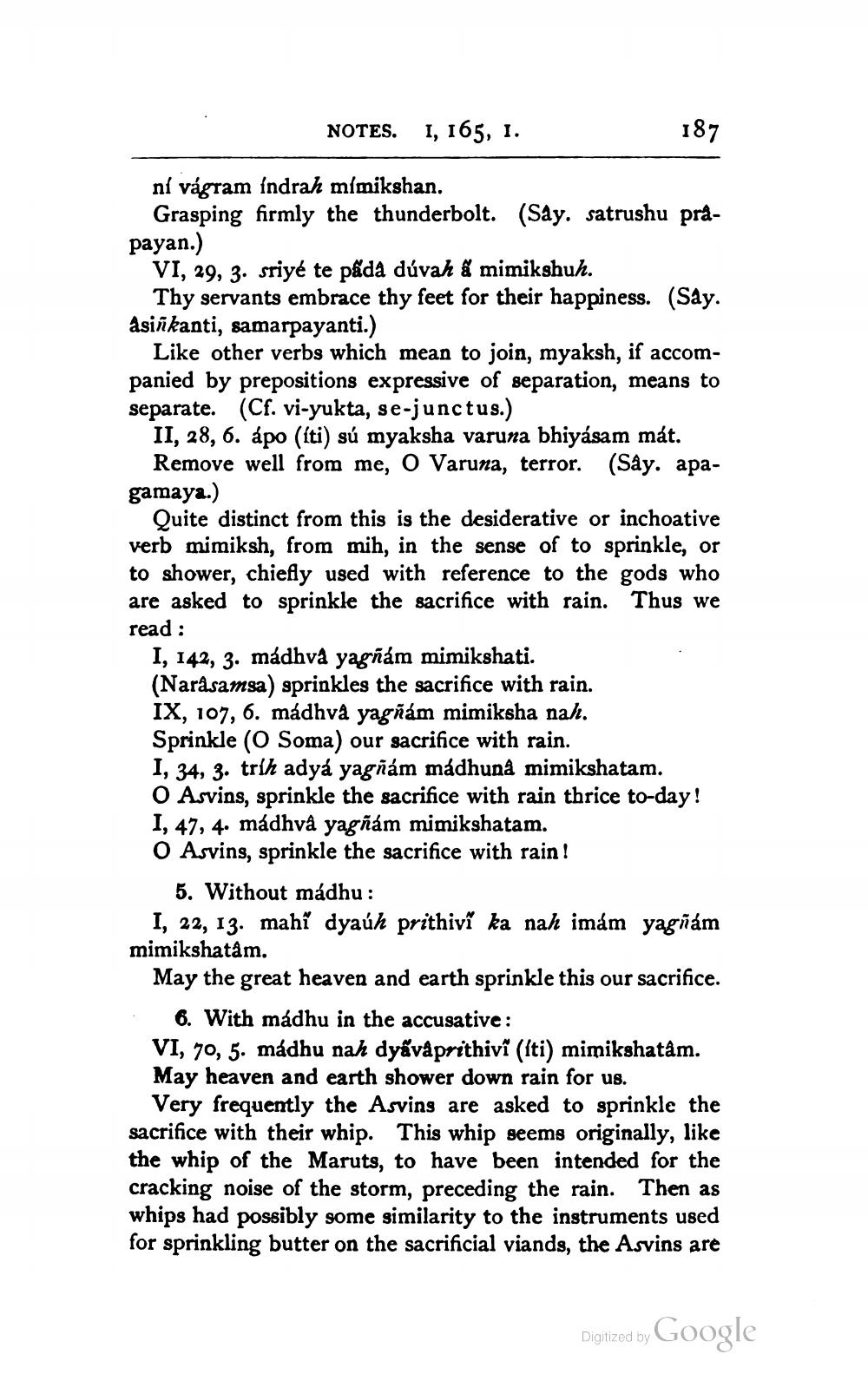________________
NOTES. I, 165, 1.
187
ni vágram indrah mimikshan.
Grasping firmly the thunderbolt. (Say. satrushu prapayan.)
VI, 29, 3. sriyé te pada dúvah å mimikshuh.
Thy servants embrace thy feet for their happiness. (Say. asinkanti, samarpayanti.)
Like other verbs which mean to join, myaksh, if accompanied by prepositions expressive of separation, means to separate. (Cf. vi-yukta, se-junctus.)
II, 28, 6. ápo (iti) sú myaksha varuna bhiyásam mát.
Remove well from me, O Varuna, terror. (Say. apagamaya.)
Quite distinct from this is the desiderative or inchoative verb mimiksh, from mih, in the sense of to sprinkle, or to shower, chiefly used with reference to the gods who are asked to sprinkle the sacrifice with rain. Thus we read:
I, 142, 3. mádhva yagñám mimikshati. (Narasamsa) sprinkles the sacrifice with rain. IX, 107, 6. mádhva yagñám mimiksha nah. Sprinkle (О Soma) our sacrifice with rain. I, 34, 3. trih adya yagnám madhunå mimikshatam. O Asvins, sprinkle the sacrifice with rain thrice to-day! I, 47, 4. madhva yagñám mimikshatam. O Asvins, sprinkle the sacrifice with rain!
5. Without madhu : I, 22, 13. mahỉ dyaúh prithivi ka nah imam yągnám mimikshatâm. May the great heaven and earth sprinkle this our sacrifice.
6. With madhu in the accusative: VI, 70, 5. madhu nah dyāvaprithivî (sti) mimikshatâm. May heaven and earth shower down rain for us.
Very frequently the Asvins are asked to sprinkle the sacrifice with their whip. This whip seems originally, like the whip of the Maruts, to have been intended for the cracking noise of the storm, preceding the rain. Then as whips had possibly some similarity to the instruments used for sprinkling butter on the sacrificial viands, the Asvins are
Digitized by
Digitized by Google




